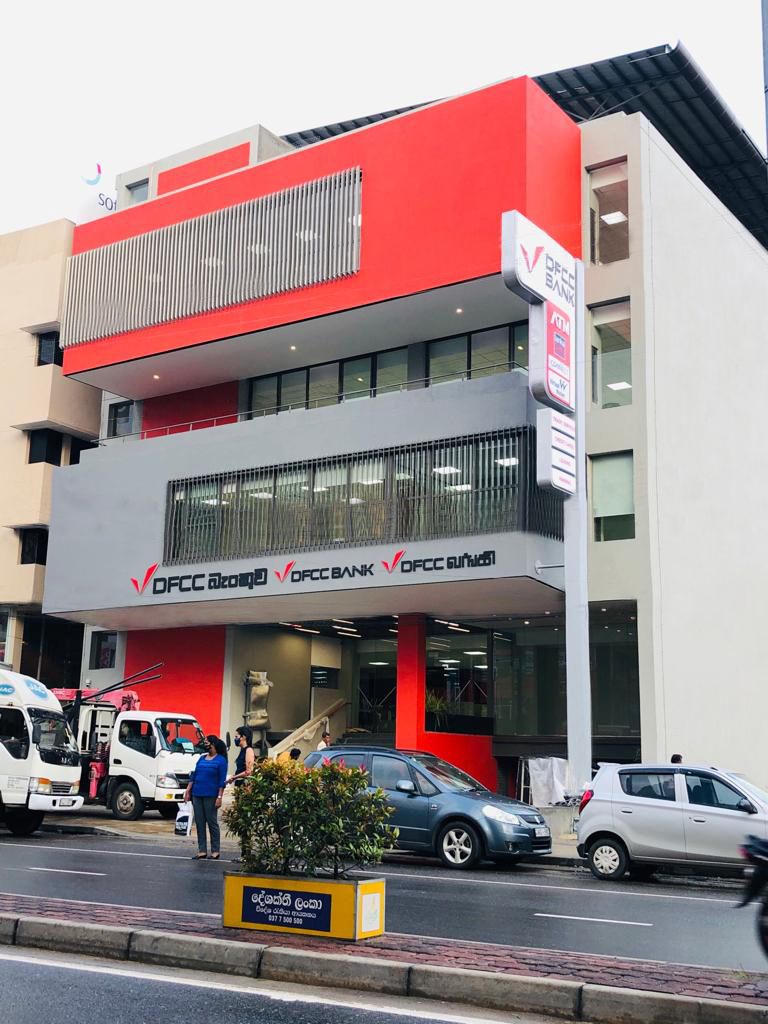DFCC Bank implements energy-saving initiatives in line with its Sustainability Strategy
3 min read
DFCC Bank, the Bank for Everyone, through its Sustainability
Strategy, seeks to create a resilient world for everyone. Developed in 2020, DFCC Bank’s
Sustainability Strategy maps out the Bank’s sustainability goals for the next decade, with a vision to
emerge as the leading bank contributing towards sustainability by 2030.
As part of the Sustainability Strategy, the Bank works on its big goals; A Carbon Neutral Bank by
2030, the Bank for Green Finance in Sri Lanka, and to achieve Sustainable work lifestyles by 2030.
To meet the goal of transforming into a carbon-neutral bank, DFCC Bank has identified energy
efficiency and electricity savings as a key focus area, particularly against the backdrop of Sri Lanka’s
present energy crisis. In this endeavour, the Bank has launched many initiatives to optimize energy
efficiency across its entire network, while also reducing its impact on the environment. While
focusing on energy savings, DFCC Bank is also embarking on a long-term initiative to transition
towards renewable energy.
One of the most innovative mechanisms for increasing energy savings and improving energy
efficiency at DFCC Bank is the DFCC Energy Saving App. The App was built in-house and gathers,
evaluates, measures, reports, analyzes and forecasts electricity consumption data across the Bank’s
network. The app also acts as an Eco-Management System, which extracts, transforms and loads
data to analyze and present via energy dashboards. The dashboards present various analyses
including pattern recognition and outlier analysis.
Explaining further and discussing the Bank’s Sustainability Strategy, Mr. Thimal Perera,
Director/CEO of DFCC Bank said, “In our quest to do our part to reduce our energy usage and
increase efficiency amidst the ongoing challenges, our Energy Sub-Committee has designed and
launched an energy- saving app, which provides key insights across our network and also shows, on
a geographic level, where energy consumption is highest. In addition to this, we have also
implemented a variety of interactive energy-saving activities, such as various competitions
designed to conserve electricity. By gamifying the process of energy-saving and efficiency
enhancement, we are involving all our staff in this noble and critically important endeavour. “
DFCC aims to become 100% paperless internally and 50% paperless in total by the year 2024. To
achieve this, the Bank has taken various measures and one that stands out the most is the
“Paperless Certification Program”. Under this program, all departments are encouraged to make
changes to their respective processes to reduce paper by at least 85% and submit those processes to
be independently audited and certified as paperless. This initiative created a lot of engagement
across the Bank and resulted in sizable annualized paper savings.
Also, the Bank is now working on a project to open accounts digitally without any paper. This would
not only drastically reduce the Bank’s paper consumption but will also make banking much more
convenient and fast for the customers.
The Bank has also commissioned solar power generation arrays at Kurunegala, Negombo and
Ramanayake Mawatha branches with plans for other branches in the works. With these initiatives,
the Bank was able to save a considerable amount of grid consumption during the last couple of
years.
DFCC Bank has been a pioneer in financing renewable energy and driving sustainable
transformation in Sri Lanka. The Bank began its green financing journey in 1988 when it funded a
solar PV module assembly plant, along with a plethora of other projects, including Sri Lanka’s first
private sector grid- connected mini-hydro project, wind, solar, waste-to-energy and biomass-based
combined heat power projects. The Bank has also financed countless rooftop solar power
generation systems and also pioneered the introduction of standardized power purchasing
agreements in Sri Lanka, in 1997, which to date forms the cornerstone of the framework that
facilitates private investment in Sri Lanka’s renewable energy sector.